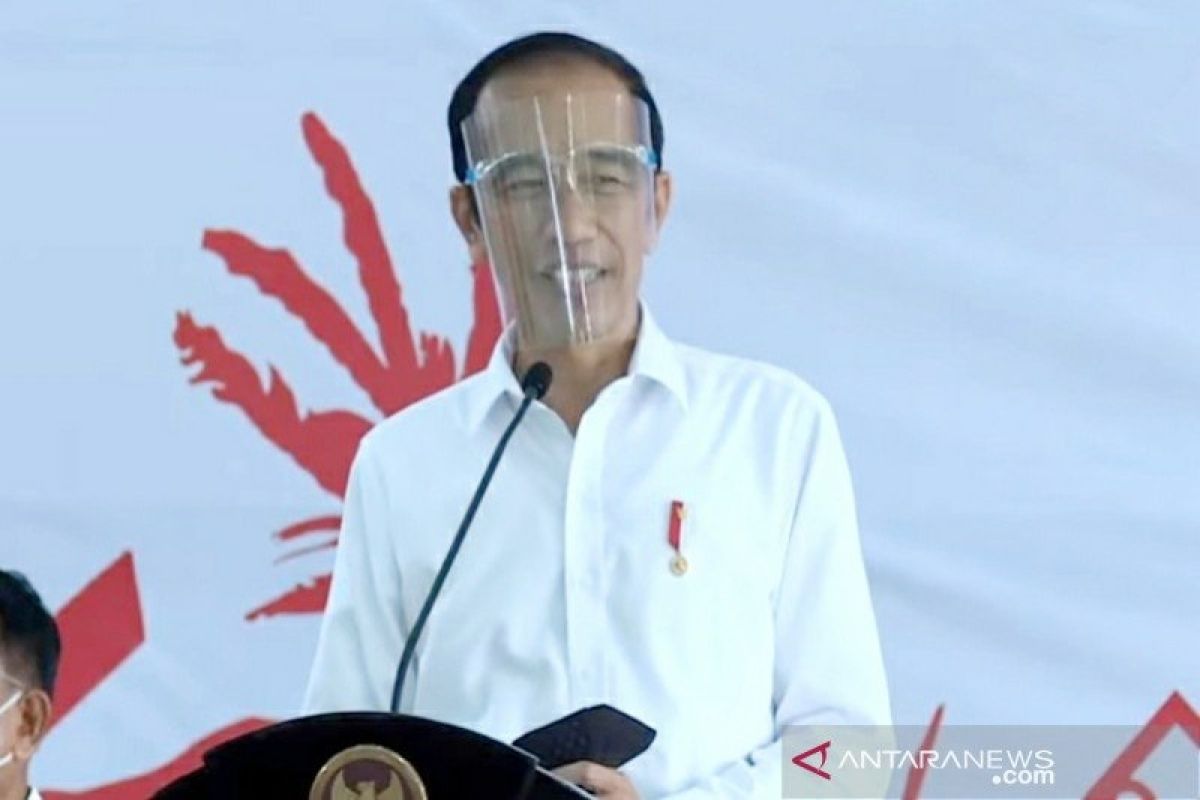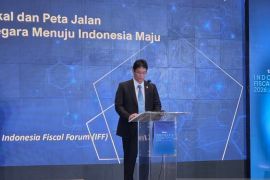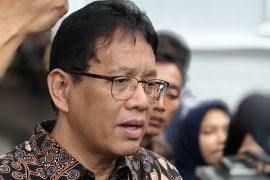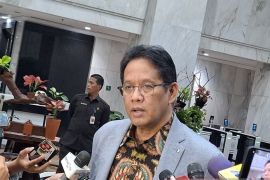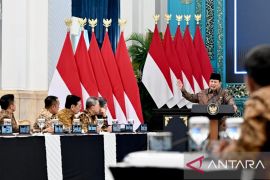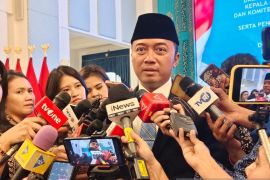Based on data from worldometers.info, as of December 5, 2020, more than 66.3 million people across the globe have been infected with COVID-19 and more than 1.5 million people have succumbed to the virus since its reported emergence in Wuhan, China in December, 2019.
The June 2020 Global Economic Prospects report has predicted a 5.2-percent contraction in global GDP in 2020. Over the long term, deep recessions triggered by the pandemic are expected to leave lasting scars through decline in investment, erosion of human capital through lost work and schooling, and fragmentation of global trade and supply linkages, it stated.
Indonesia has not been spared by the pandemic. The country has recorded a total of 569,707 confirmed COVID-19 cases and 17,589 deaths since reporting its first infections in March, 2020.
The Indonesian economy contracted 5.32 percent in the second quarter and 3.49 percent in the third quarter.
"Our economy contracted 5.32 percent in the second quarter and 3.49 percent in the third quarter. This means it has passed its lowest point and is moving toward a positive trend," President Joko Widodo (Jokowi) said on December 3, 2020.
Related news: State budget instrumental in helping public thwart pandemic's impact
With economic activities hampered by COVID-19, the government has relied on the State Budget (APBN) to support COVID-19 handling and economic recovery efforts, as well as provide social assistance to those affected economically by the impact of the pandemic.
Earlier, the President emphasized that four areas will be prioritized in the 2021 State Budget (APBN).
"First is handling health. In terms of handling COVID-19, the main focus will be on vaccination," President Widodo said on November 25, 2020.
The second area of focus pertains to social protection, particularly for the less fortunate and vulnerable groups.
The third priority is the economic recovery program, especially support for MSMEs and the business world. The fourth focus area is to build a stronger foundation by conducting structural reforms in health, education, social protection, and other fields.
"In the 2021 APBN, the government has allocated Rp2,750 trillion for expenditure, an increase of 0.4 percent as compared to the expenditure allocation in the 2020 APBN," the President noted.
The allocation comprises Rp1,032 trillion for ministerial and institutional expenditures and Rp795.5 trillion for regional transfers and village funds.
A total of Rp169.7 trillion has been allocated for the health sector, Rp550 trillion for the education sector, Rp417.17 trillion for infrastructure development, Rp408.8 trillion for social protection, Rp99 trillion for food security, and Rp26 trillion for the development of information technology.
"When the economy is still sluggish, government spending is the main driving force of our economy. Hence, the 2021 State Budget must be spent immediately to drive our economy," Widodo stressed.
He urged all ministers, institutional leaders, and regional heads to not delay spending their budget in order to help the economy return to growth in the first quarter of 2021.
The President also called for flexibility in using the budget in facing the current state of uncertainty and asked the ministerial ranks as well as regional and institutional heads to conduct budget reforms to drive the economy.
In response to the call for budget reform, chairman of the National Economic Recovery and Transformation Task Force, Budi Gunadi Sadikin, recently said he has reallocated the national economic recovery budget, which includes funds for the health sector, specifically for vaccines.
"We would like to convey the information that we have carried out a slight reallocation from the national economic recovery budget to give a bigger focus to the social protection program," he informed.
He explained that the social protection program budget has been increased to Rp234.4 trillion from Rp203.90 trillion, while the budget for the health sector has been raised to Rp97.26 trillion from Rp87.55 trillion due to the planned vaccination programs.
This means, a total of Rp36.69 trillion, or 40.81 percent of the budget ceiling, has been funneled to the health sector, while Rp44.82 trillion, or 37.16 percent of the budget ceiling, has been channeled towards business incentives, he informed.
Furthermore, Rp203.6 trillion, or 86.88 percent of the budget ceiling, has been allocated for social protection, and Rp97.05 trillion, or 84.53 percent of the budget ceiling, has been allocated for the micro, small, and medium enterprises (MSMEs) sector, he added.
Related news: Government strives to maintain sound state budget amid pandemic
Meanwhile, Rp36.06 trillion, or 54.66 percent of the budget ceiling, has been funneled to ministries, institutions, and regional governments, while Rp2 trillion, or 3.22 percent of the budget, has been allocated for the corporate funding sector.
A sound State Budget is crucial to help assuage the impact of the pandemic and support the community and businesses to survive.
Finance Minister Sri Mulyani Indrawati has averred that the state budget has achieved its extraordinary objective of addressing the impact of the COVID-19 pandemic.
The state budget is a vital instrument to help Indonesians overcome the impact of the pandemic in the health, economic, social, and financial fields, the minister remarked recently.
"The state budget has performed its extraordinary duty this year. However, this is not the last episode since we still have a long path to tread to restore the economic life of the community," she affirmed.
Sri Mulyani, who has been named the best minister several times, highlighted the government's struggles, through the state budget to encourage people to emerge from pressures arising from the pandemic, were far from over, as a wide range of challenges still lie ahead.
State finances must be managed properly to achieve the goals of the nation, including overcoming the COVID-19 pandemic, which is expected to last until next year, she stated.
To this end, the minister urged her rank and file to serve as heroes in managing state finances so as to achieve the nation's goals.
She assured the government's relentless efforts to maintain the State Budget remain healthy despite the pressure caused by the COVID-19 pandemic.
"The APBN is under pressure, but Alhamdulillah, we have been maintaining a sound APBN. Hence, when we have to face COVID-19, we are in a healthy condition," the minister noted.
The APBN deficit until the end of October, 2020 had reached Rp764.9 trillion, or 4.67 percent of the target of Rp1,039 trillion set in the Presidential Decree 72 of 2020, or 6.34 percent of the Gross Domestic Product (GDP).
This was due to the realization of state revenue that was recorded at just Rp1,276.9 trillion until October and lower than the realization of expenditure that had reached Rp2,041.8 trillion.
In the health field, the APBN has funded COVID-19 testing, tracing, treatment, incentives for medical personnel, provision of personal protection equipment (PPEs), medicines, and ventilator devices, Sri Mulyani pointed out.
The APBN is also offering support to people in facing the pandemic. Thus, over 37 million families have received direct assistance in the form of cash or basic necessities, she noted.
It has also helped provide 50-100 percent discounts in electricity bills to over 35 million families, and subsidized wages to more than 20 million employees, including honorary teachers, with incomes below Rp5 million.
Furthermore, the APBN has supported the mandated online learning and teaching activities for students and teachers, so that free Internet is provided to over 50 million students, teachers, and lecturers, Sri Mulyani said.
The APBN has also been used to help more than 20 million MSMEs through provision of productive assistance and relaxation of installment payments.
She further urged the government, public, and all elements of the nation to work in a unified manner to ensure the state budget serves as an effective instrument to help the country emerge from the impact of the pandemic soon.
"Never feel tired of loving the Republic of Indonesia. Give your best contributions to the state and nation," she emphasized.
She also urged Indonesians to remain vigilant of COVID-19 as the country has lately witnessed a spike in cases, which could have a tremendous social and economic impact. (INE)
Related news: Govt asks Indonesians to remain productive, innovative amid pandemic
Editor: Yuni Arisandy Sinaga
Copyright © ANTARA 2020
